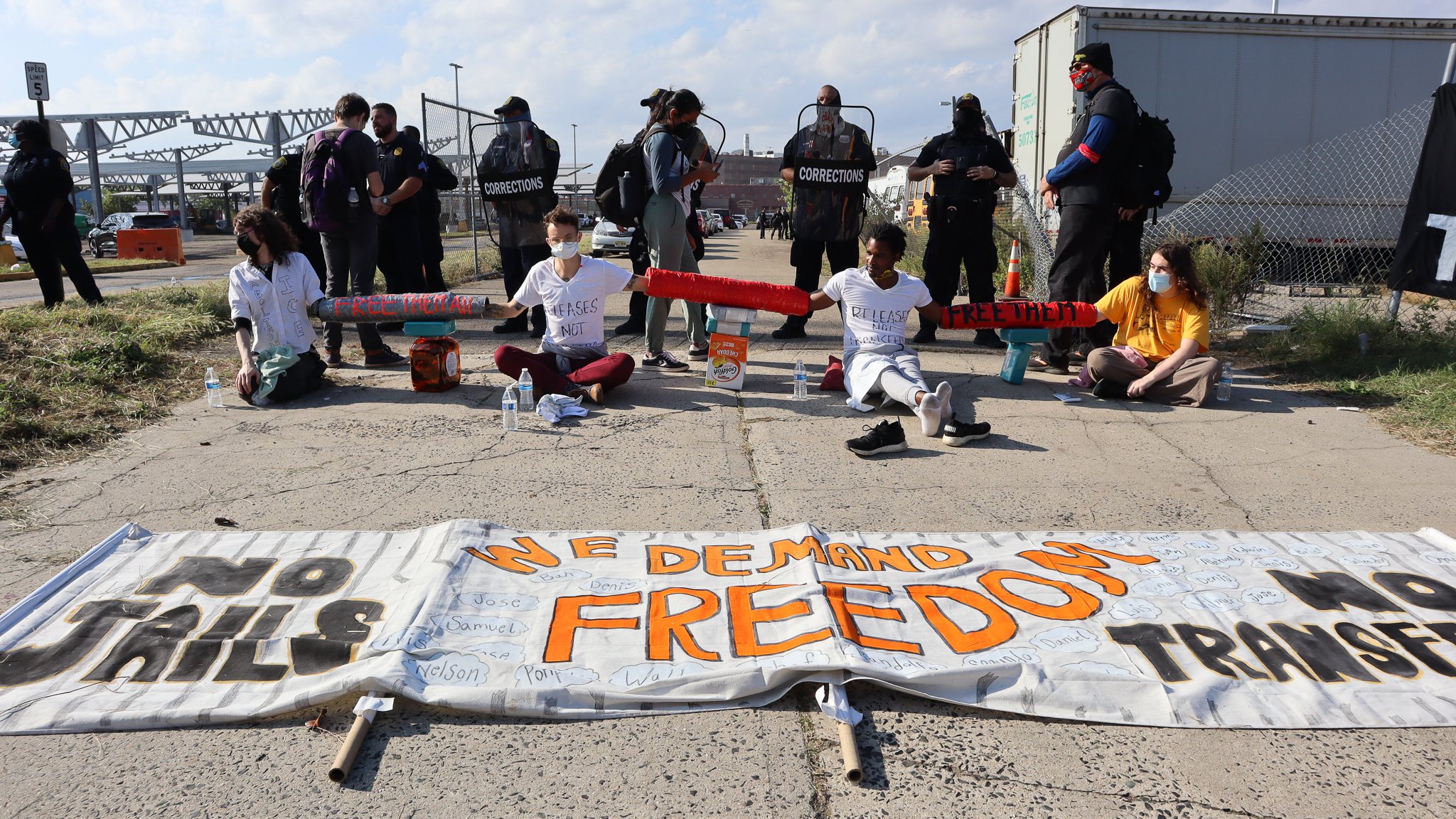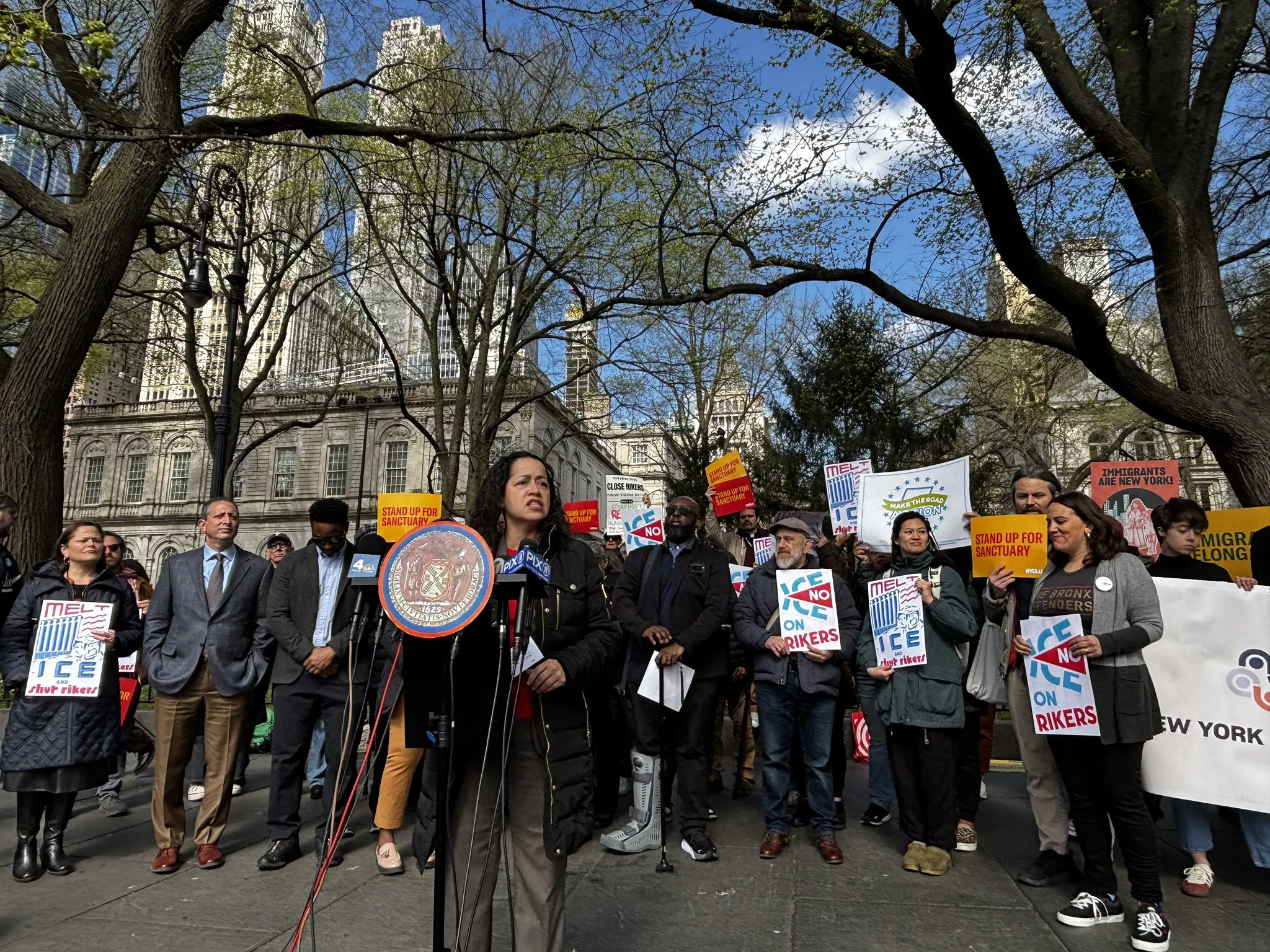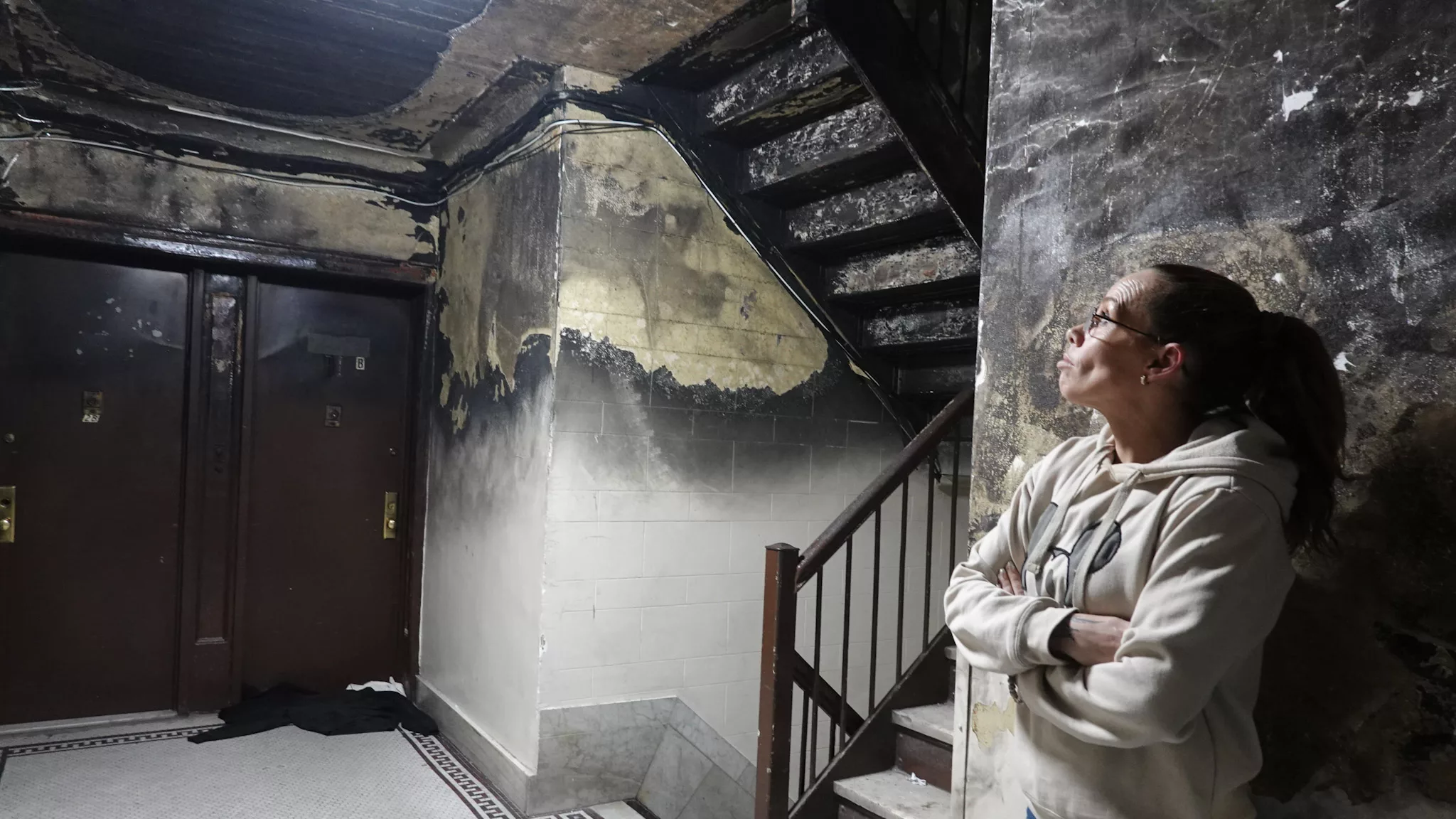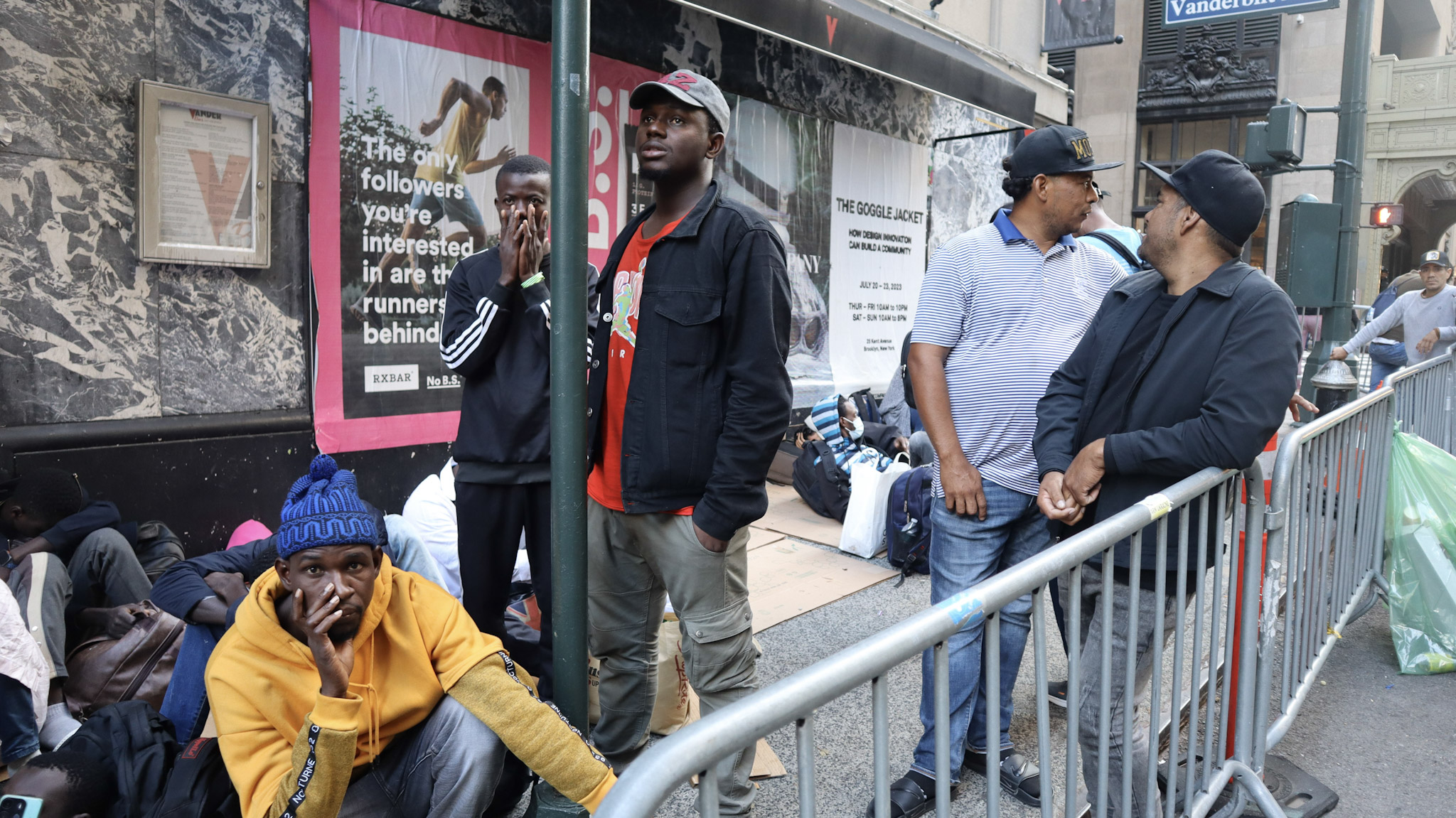For about five months, Anthony has been sitting in the Hudson County jail praying for his release. Instead, he was transferred to a new detention facility, while his main priority remains getting back to work to resume sending money back to his family in El Salvador.
“I feel sad because I don’t know where I’m going,” Anthony, who preferred to use a pseudonym for fear of retribution from authorities, said in Spanish before he was transferred. “They’re going to take me to a place where I don’t even know what kind of people are there — if there are good people, or bad people.”
Also Read: New Jersey is the First East Coast State to Ban Further Contracts with ICE
Immigrants and their advocates fought to force New Jersey officials to stop holding people in deportation proceedings in county jails for years. But as local jails started announcing they would stop detaining immigrants for Immigration and Customs Enforcement, the agency started sending detained immigrants to far flung parts of the U.S., away from their families and lawyers.
ICE has been telling various lawyers representing immigrants who were detained in New Jersey that it cannot release their clients due them being a public safety threat, despite some immigrants being jailed on unresolved charges for nonviolent crimes, like Anthony. The situation underscores the power ICE has over where and how detained immigrants are held, unlike in the criminal court system where advocates have sometimes led a successful push to reduce pretrial detention.
“We all hoped that ICE would use its discretion to release,” said Ellen Pachnanda, the attorney-in-charge of the New York Immigrant Family Unity Project at the Brooklyn Defender Services. But now, one thing is now clear for advocates, Pachnanda said: “As long as ICE retains this discretion to transfer, they will transfer.”
As of November 1st, no more detained immigrants will be held at the Hudson County jail. Bergen County — the last to break ties with ICE — has about one more month to move detained immigrants out of the county jail, according to county officials. In late August, Essex County also stopped housing immigrants at its jail. The shift leaves just one private detention center in New Jersey housing detained immigrants: the Elizabeth Contract Detention Facility.
Also Read: Bergen County Will No Longer Detain Immigrants for ICE
It’s a pivotal juncture in the history of ICE’s presence in New Jersey — one that comes with mixed feelings. Immigrants, their families and their legal counsel are exasperated at ICE’s determination to keep most people in custody, often in lockups further from their families than the New Jersey facilities. Advocates and the immigrants want those facing deportation to be freed, even if it’s under ICE supervision while their cases proceed through the courts. The agency gave attorneys an early October deadline to submit the requests for release, attorneys said. But ICE, in many cases, has been denying these requests, saying that the immigrants are public safety threats, and therefore cannot be released.
Attorneys were given until October 4 to submit release requests before the detained immigrants at Hudson County were transferred to the Orange County Correctional Facility about 60 miles northwest of New York City, ICE said. But if attorneys did not submit the requests while their clients were at Hudson, they could still submit release requests after that, ICE said in a statement to Documented. ICE informed teams that the agency would continue to accept release requests outside of the 10-day window which preceded October 4, ICE said.
A spokesperson for ICE said the agency “is committed to ensuring that all those in [its] custody reside in safe, secure, and humane environments and under appropriate conditions of confinement.”
“Detainees in transit from one facility to another institution or jurisdiction will be transported in a safe and humane manner under the supervision of trained and experienced personnel,” the spokesperson said. Requests for release are reviewed on a case by case basis, the spokesperson said, and must be sent to the detained immigrant’s deportation officer with all the required supporting documentation.
In July of 2019, 35 percent of detained immigrants at the Hudson facility had no criminal convictions, according to data analyzed by the Transactional Records Access Clearinghouse at Syracuse University. The majority of those with criminal convictions, 27 percent, were convicted of only a misdemeanor or petty violation. Nine percent had level 2 offenses, which are primarily property crimes, according to ICE. In 2019, 30 percent of immigrants at the facility had a level 1 offense, which include more serious crimes such as national security violations, homicide, kidnapping, and sexual assault, ICE has said in its operating procedures.
Anthony is in ICE detention as he awaits adjudication of a misdemeanor drug possession charge, among other lesser infractions. Currently, most people held in immigration detention in New Jersey have separate pending criminal cases which have put their immigration status in jeopardy, or have already served their time for low-level for criminal convictions, attorneys said.
Also Read: Advocacy Groups File Complaint About Abuses at New Jersey ICE Jail
ICE told Anthony’s attorney, Sophia Genovese of Catholic Charities, in an email reviewed by Documented that the agency had “carefully considered all supporting documents that you provided in your release request and found no compelling reason warranting a favorable exercise of discretion.” The email added: “Your request for your client’s release is respectfully declined due to him being a public safety threat.”
But moving people further away from the courts where they may have pending criminal cases jeopardizes access to counsel for these cases, said Leena Khandwala, a Managing Attorney for the Detention and Deportation Defense Initiative at the Rutgers Law School Immigrants Right Clinic, which is currently representing eight immigrants detained at the Bergen County Jail.
New York immigration attorneys previously have had clients transferred as far away as Georgia, Massachusetts and Nevada. Some detention facilities didn’t facilitate video appearances that are required for many criminal court proceedings, and for all transferred clients it has been “consistently difficult” to arrange for criminal, municipal or family court appearances in New Jersey, even by phone or Zoom, Khandwala said.
An ICE spokesperson said the agency had 43 detained immigrants who were housed at the Hudson County jail when the county announced it would no longer hold immigrants detained by ICE as of November 1. ICE subsequently received 28 release requests, the spokesperson said. Nine detained immigrants were released from custody, five were deported — as ordered by an immigration judge — and 29 were transferred from Hudson to the Orange County facility during the process, ICE said. The agency did not specify how many release requests were denied.
Lawyers said that they had insufficient time to put together complex release requests, and that ICE seems arbitrary in its determinations. Pachnanda’s team had at least two release requests denied within 24 hours, or just over that time frame, but attorneys immediately appealed these decisions, according to Daniel Ball, a spokesman for the Brooklyn Defender Services. ICE the quickly upheld these denials, some just within the same day or the next, Ball said. “These denials are just happening rapidly, and do not align with the enforcement priorities, and do not consider everything that we submitted or any of the advocacy for these individuals,” Pachnanda said.
For Anthony, his dream is to be released, he said. If he is let out, he wants to go back to live with his uncle on Long Island, and keep working in construction. He’ll use that money to continue supporting his mother and younger brother back in El Salvador, he said.
“That’s what I’m hoping for—to be back outside, working and fighting and helping my mom because my mom needs my help, and I’m the only person who can help her,” Anthony said.
The transfer, he said, is nerve wracking, and he’s worried that he won’t be able to speak to his family as often at the Orange County facility. “I’m scared because I don’t know where I’m going, and there’s not going to be anybody there—I’m going to be alone, alone with God in a cell,” he said. “That’s why I feel sad.”














